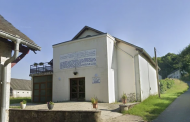Islam Mohammed
The Darfur crisis has long been an outlet for the Qatari role in Sudan, as it has taken over the file of negotiations and mediation between the government and the rebels in the troubled region, which is located in the west of the country, and suffers from countless crises.
The crisis in Darfur constituted sensitivity of the Sudanese regime, because it was the motive behind the International Criminal Court issuing an arrest warrant and summoning the ousted President Omar al-Bashir to accuse him of responsibility for the crimes of ethnic cleansing against some of the local population.
Qatar has formed the loose gateway to Sudan due to the complexity of the issue and the spread of chaos in the region, beyond the government’s ability to control it, and such an appropriate entrance for Doha, which sponsored a peace agreement on July 14, 2011, the government concluded with the “liberation and justice” movement, while the rebel movements rejected it.
After the overthrow of Al-Bashir regime last year, Qatar excavated an appropriate outlet to allow it to return to the Sudanese square again, as its relations with the Transitional Military Council in Khartoum were tense.
But after the formation of the current government of Hamdock, and with Sudan’s need for external support economically and diplomatically, the Qataris returned from a portal financial and political support for the new government, and the continuation of the relief role in the west of the country.
This comes in order to restore the lost influence after the deterioration in Sudan’s relations with the Turkish-Qatari axis, after the success of the Sudanese revolution.
The Darfur crisis was the legitimate door to Doha continuously to enhance its influence in this afflicted African country. This gave it wide influence, to the extent of possessing powers, to create whole cities such as Umm Zhai, which was created by Qatar in the state of East Darfur, and what has happened on the one hand is that it controls all political, economic and developmental fields in these regions.
The Qatari failure to attach all the armed rebel factions fighting in Darfur to the peace document has motivated the African Union to try to withdraw the mediation file from Doha, but the complexity of the file and the intervention of many international parties made it difficult for all parties.








































admin in: How the Muslim Brotherhood betrayed Saudi Arabia?
Great article with insight ...
https://www.viagrapascherfr.com/achat-sildenafil-pfizer-tarif/ in: Cross-region cooperation between anti-terrorism agencies needed
Hello there, just became aware of your blog through Google, and found ...